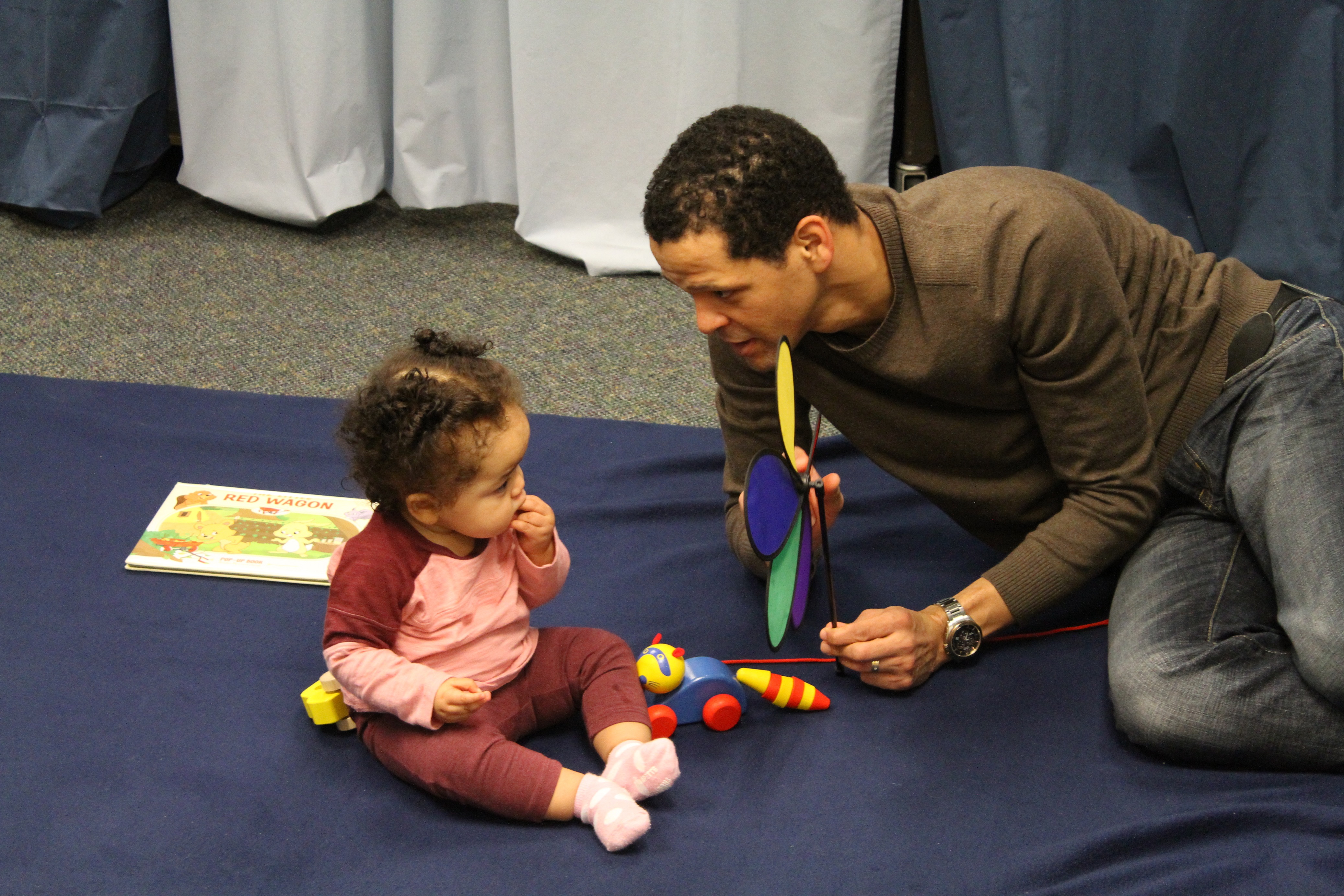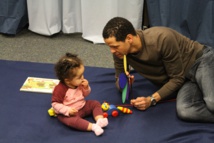Many brain studies have shown that bilingual adults have more activity in areas associated with executive function, a set of mental abilities that includes problem-solving. Now new findings of the University of Washington (Seattle, USA) reveal that this difference is evident as early as 11 months of age, when babies are about to produce their first words.
According to Naja Ferjan Ramírez, lead author and research scientist at the Institute for Learning & Brain Sciences (I-LABS) of the university, this “suggests that bilingualism shapes not only language development, but also cognitive development more generally.”
The study, as the University of Washington reports, also gives evidence that babies’ brain from bilingual families remains more open to learn new language sounds, compared with babies from monolingual families.
Researchers used magnetoencephalography (MEG), which measures magnetic changes given off by active nerve cells. Unlike other brain-imaging methods, MEG can determine precisely the moment and location of activity in the brain.
In the experiment, 16 11-month-old babies –eight from families that only speak English and eight from families that speak Spanish and English, and an even mix of demographic factors such as the family’s socioeconomic status– sat in a highchair beneath the MEG scanner.
Babies listened to 18-minute stream of speech sounds, such as “da’s” and “ta’s.” The stream included specific sounds of English or Spanish, and sounds shared by the two languages. The researchers compared monolingual and bilingual’s brain responses to the languages sounds. The most obvious difference they saw was in two regions of the brain associated to the executive function: the prefrontal and the orbitofrontal cortex. In these regions, bilingual babies had stronger brain responses to the speech sounds, compared with monolinguals.
The boost bilingualism gives to the areas of the executive function in the brain may suggests that bilinguals need to switch between languages, what allows them to routinely practice and improve executive function skills.
The study shows that bilingual babies had the same sensibility to English sounds as monolingual babies, which suggests that both were learning English at the same rate.
According to Naja Ferjan Ramírez, lead author and research scientist at the Institute for Learning & Brain Sciences (I-LABS) of the university, this “suggests that bilingualism shapes not only language development, but also cognitive development more generally.”
The study, as the University of Washington reports, also gives evidence that babies’ brain from bilingual families remains more open to learn new language sounds, compared with babies from monolingual families.
Researchers used magnetoencephalography (MEG), which measures magnetic changes given off by active nerve cells. Unlike other brain-imaging methods, MEG can determine precisely the moment and location of activity in the brain.
In the experiment, 16 11-month-old babies –eight from families that only speak English and eight from families that speak Spanish and English, and an even mix of demographic factors such as the family’s socioeconomic status– sat in a highchair beneath the MEG scanner.
Babies listened to 18-minute stream of speech sounds, such as “da’s” and “ta’s.” The stream included specific sounds of English or Spanish, and sounds shared by the two languages. The researchers compared monolingual and bilingual’s brain responses to the languages sounds. The most obvious difference they saw was in two regions of the brain associated to the executive function: the prefrontal and the orbitofrontal cortex. In these regions, bilingual babies had stronger brain responses to the speech sounds, compared with monolinguals.
The boost bilingualism gives to the areas of the executive function in the brain may suggests that bilinguals need to switch between languages, what allows them to routinely practice and improve executive function skills.
The study shows that bilingual babies had the same sensibility to English sounds as monolingual babies, which suggests that both were learning English at the same rate.



 English
English



